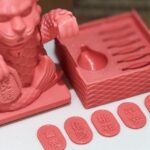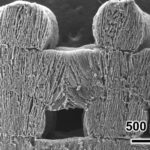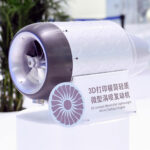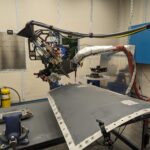Researchers have developed a fabric that transitions from soft to rigid instantaneously, potentially benefiting medical braces, robotic limbs, and more. Called RoboFabric, this material was created by a team at Nanyang Technological University, Singapore. Inspired by the scales of pangolins and armadillos, the fabric consists of 3D printed tiles connected by metal fibers running through tiny channels.

When the fibers are loose, the tiles move freely. Upon contraction, the tiles lock together, forming a structure over 350 times more rigid. This transformation can reduce the muscle power needed to lift a weight by up to 40%, useful for individuals with movement disorders like Parkinson’s. The fabric can support joints on demand, improving stability and gait, and could replace traditional plaster casts with easily removable, customizable supports.
Creating a RoboFabric brace starts with a 3D scan of the limb, followed by printing geometric tiles. Metal cables are then threaded through channels between the tiles, which connect to a device that controls tension.
“We envision that in future, patients who need a plaster cast for fractures would have the option of customizing a flexible limb support that is fabric-like before stiffening,” explains lead researcher Yifan Wang.
“Unlike conventional rigid and unremovable casts, they would also be easy to put on or remove at the touch of a button. In daily use, joint supports can also help the elderly in their daily tasks, helping to reduce the muscle strength needed for heavier loads.”
Beyond medical uses, RoboFabric shows promise in robotics. It can transition between flexible and stiff states by applying or removing vacuum pressure, demonstrated by a soft robot that can crawl, swim, and form protective shells. Additionally, drones equipped with RoboFabric grippers can adapt for various tasks without compromising aerodynamics.
The NTU team is now seeking industry partners to further develop RoboFabric.
Source: techspot.com










